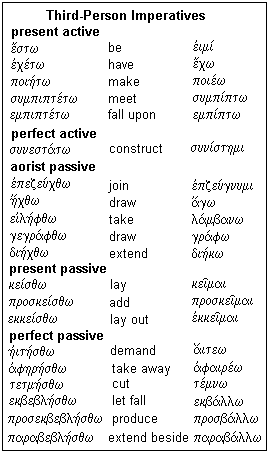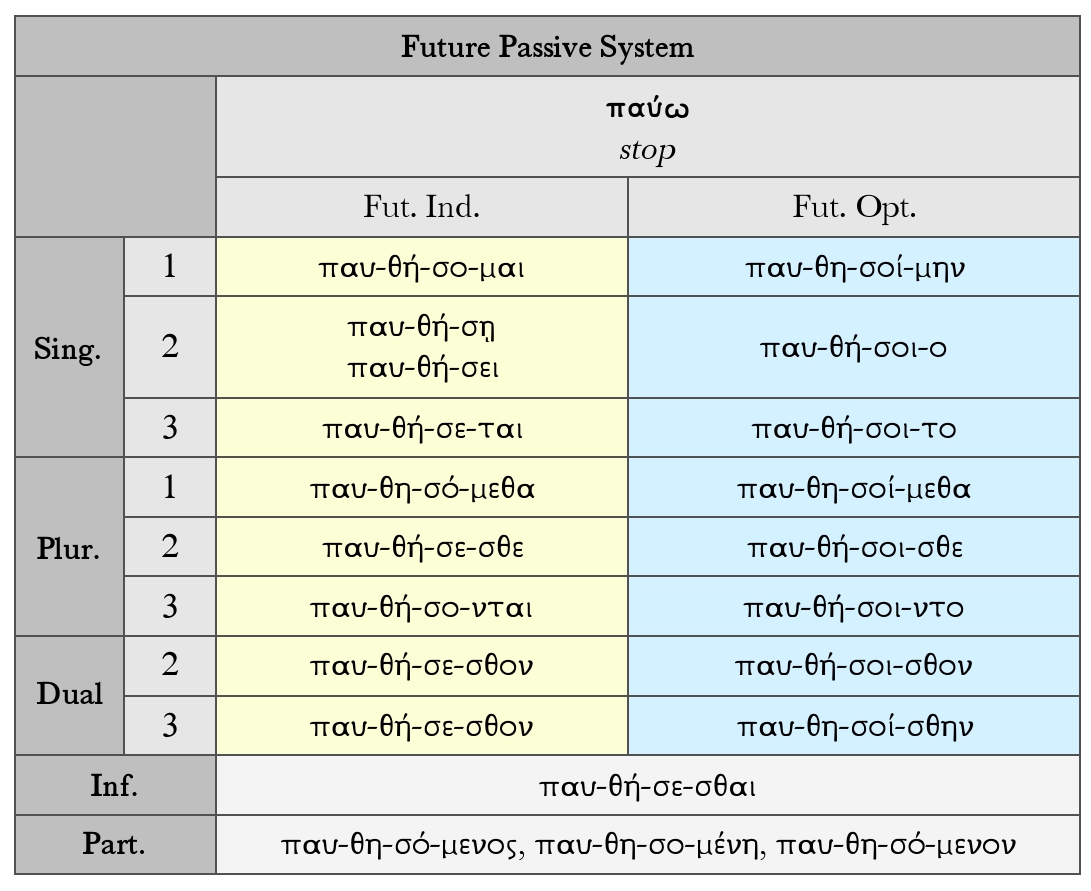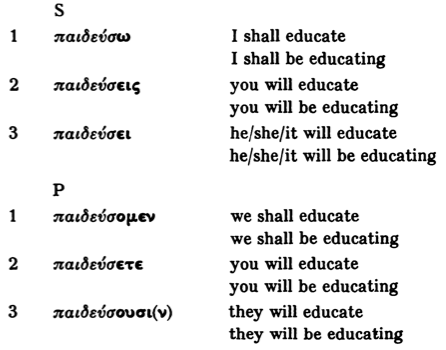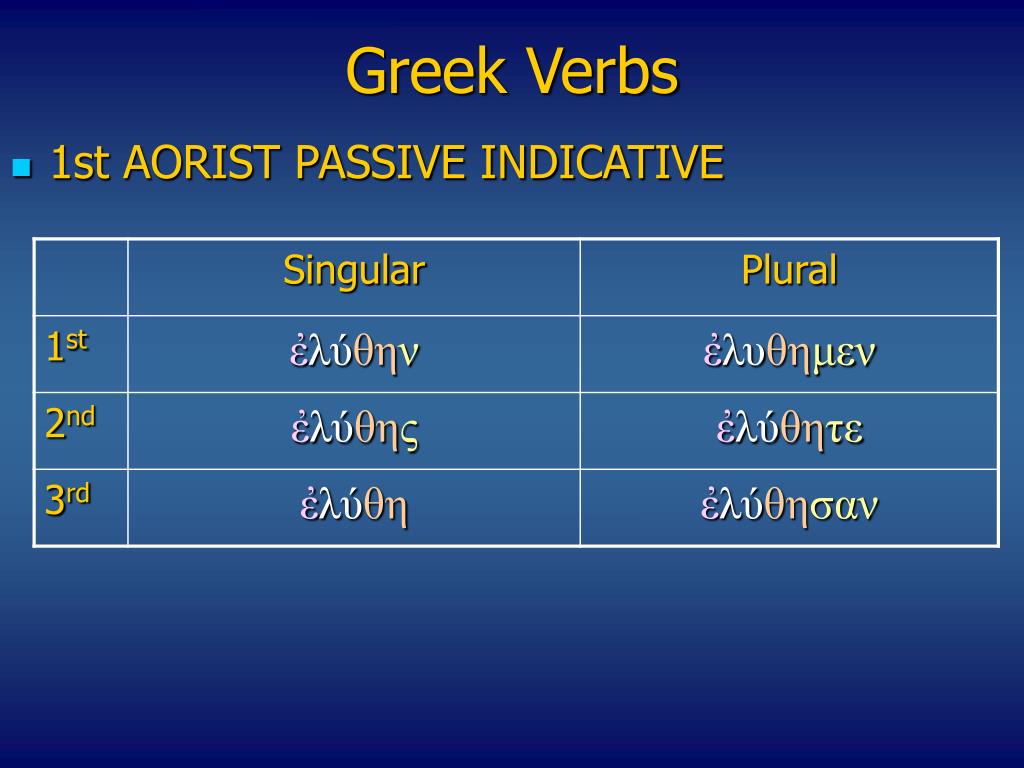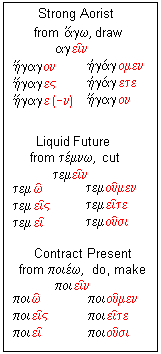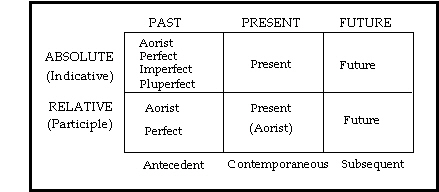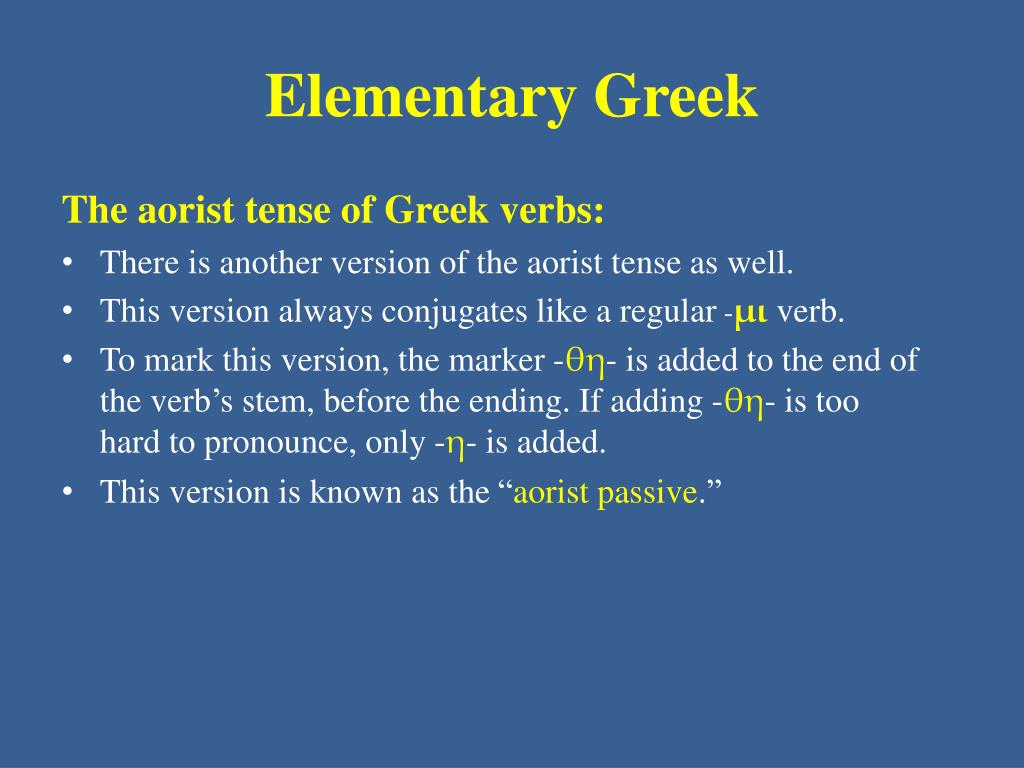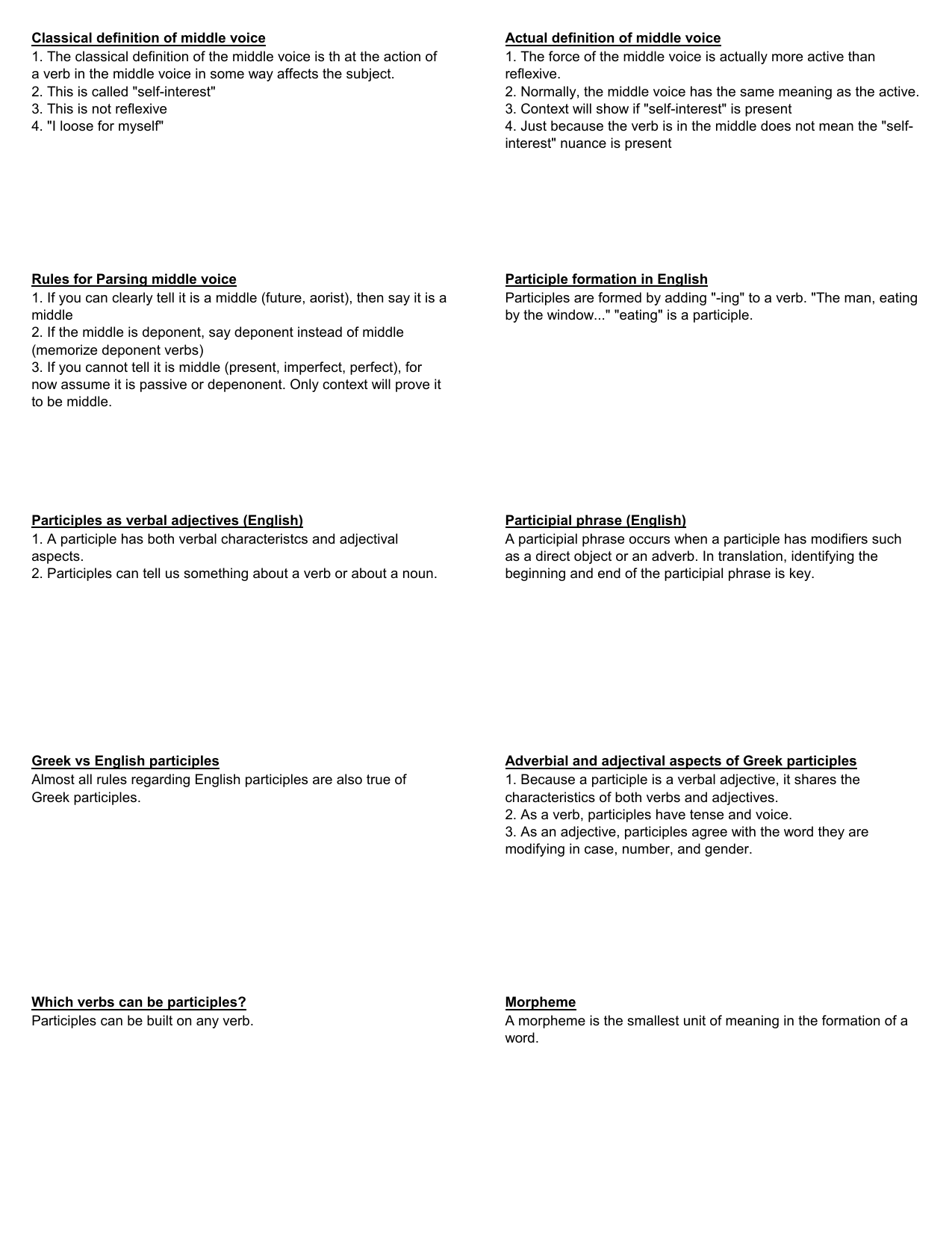Aorist Passive Attic Greek
The first future passive uses the first passive stem with σο ε added to θη as λυθησ ο ε.
Aorist passive attic greek. If adding θη is too hard to pronounce only η is added. In the participle the η shortens to ε. σαντς σανς σας.
I take i take hold of grasp seize 800 bce 600 bce homer odyssey 6 81. Though the perfect subjunctive is rarely encountered in greek s 691 693 its active form is relatively straightforward to identify. Some verbs form the aorist passive with the tense suffix ε lengthened to η in the indicative instead of θε θη as γράφω write verb stem γραφ ἐ γράφη ν.
Verb stem σα ντ 3 1 3 adjective endings. The aorist tense greek ἀόριστος aóristos unbounded or indefinite describes a finished action in the past. As with the present and aorist subjunctive personal endings are simply added to the tense stem in this case the perfect tense stem. First aorist active participle.
κατέβην χθὲς εἰς πειραιᾶ. These are called second aorists passive. Verb stem θε ντ 3 1 3 adjective endings. Often in narrative it is found mixed with present and imperfect tenses.
In traditional grammatical terminology the aorist is a tense a section of the verb paradigm formed with the same stem across all moods by contrast in theoretical linguistics tense refers to a form that specifies a point in time past present or future so the aorist is a tense aspect combination. Recall that the marker θη means an aorist is passive or intransitive. Predictable sound changes yield the following endings for the nominative singular of first aorist active participles. The literary greek of athens in the fifth and fourth centuries bc attic.
The aorist tense always conveys a single discreet action i e. While both the imperfect and aorist tenses refer to past actions and so are past tenses they differ in aspect. I went down yesterday to piraeus. As a result the pattern for the aorist passive participle is.
To form the aorist passive the following formula is used. The pattern to form the first aorist active participle is. Katébēn khthès eis peiraiâ. Advanced vocabulary lists as well as greek lexica provide six principal parts for greek verbs and the aorist passive is the sixth principal part.
For conjugation in dialects other than attic see appendix ancient greek dialectal conjugation.



